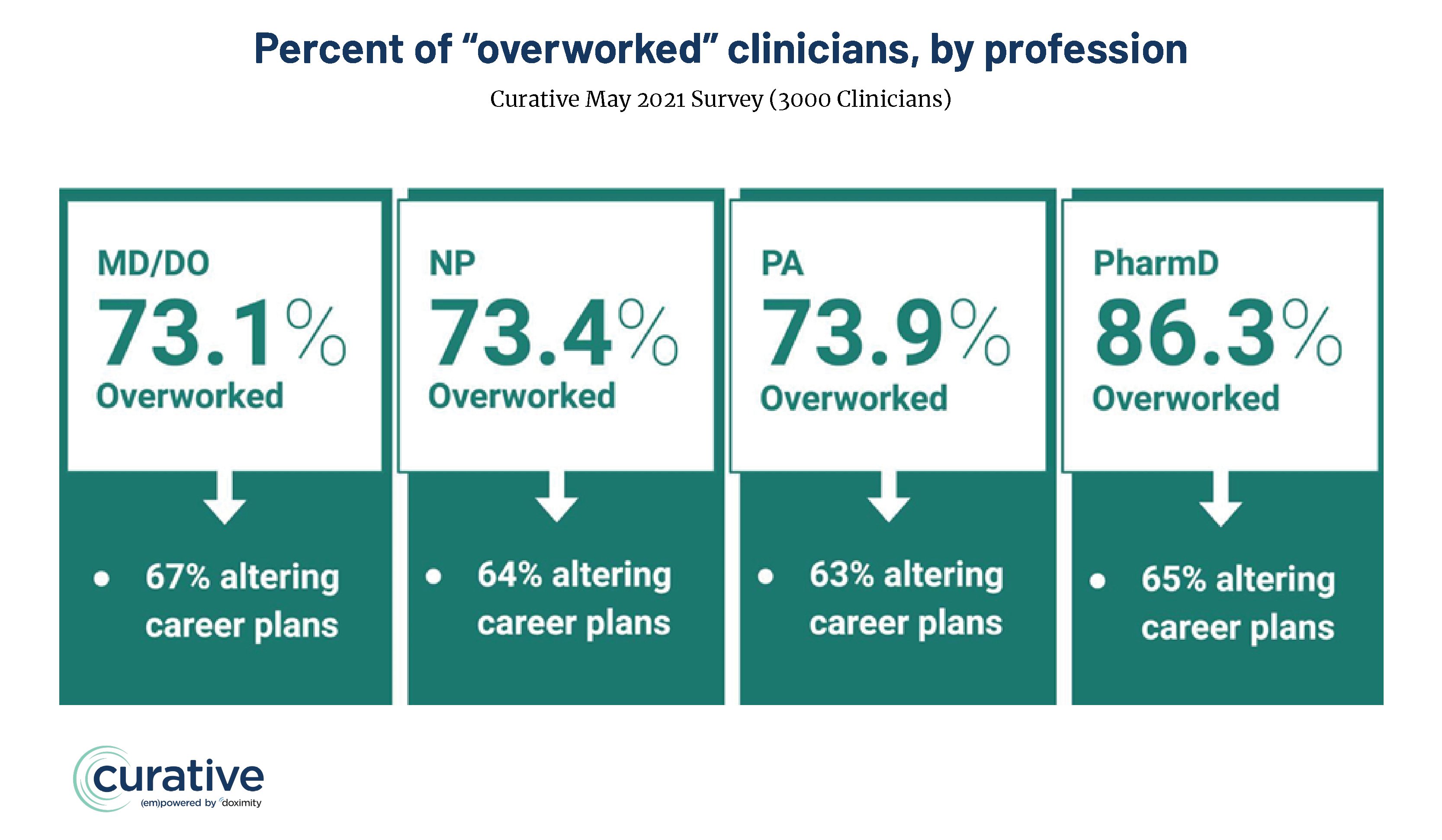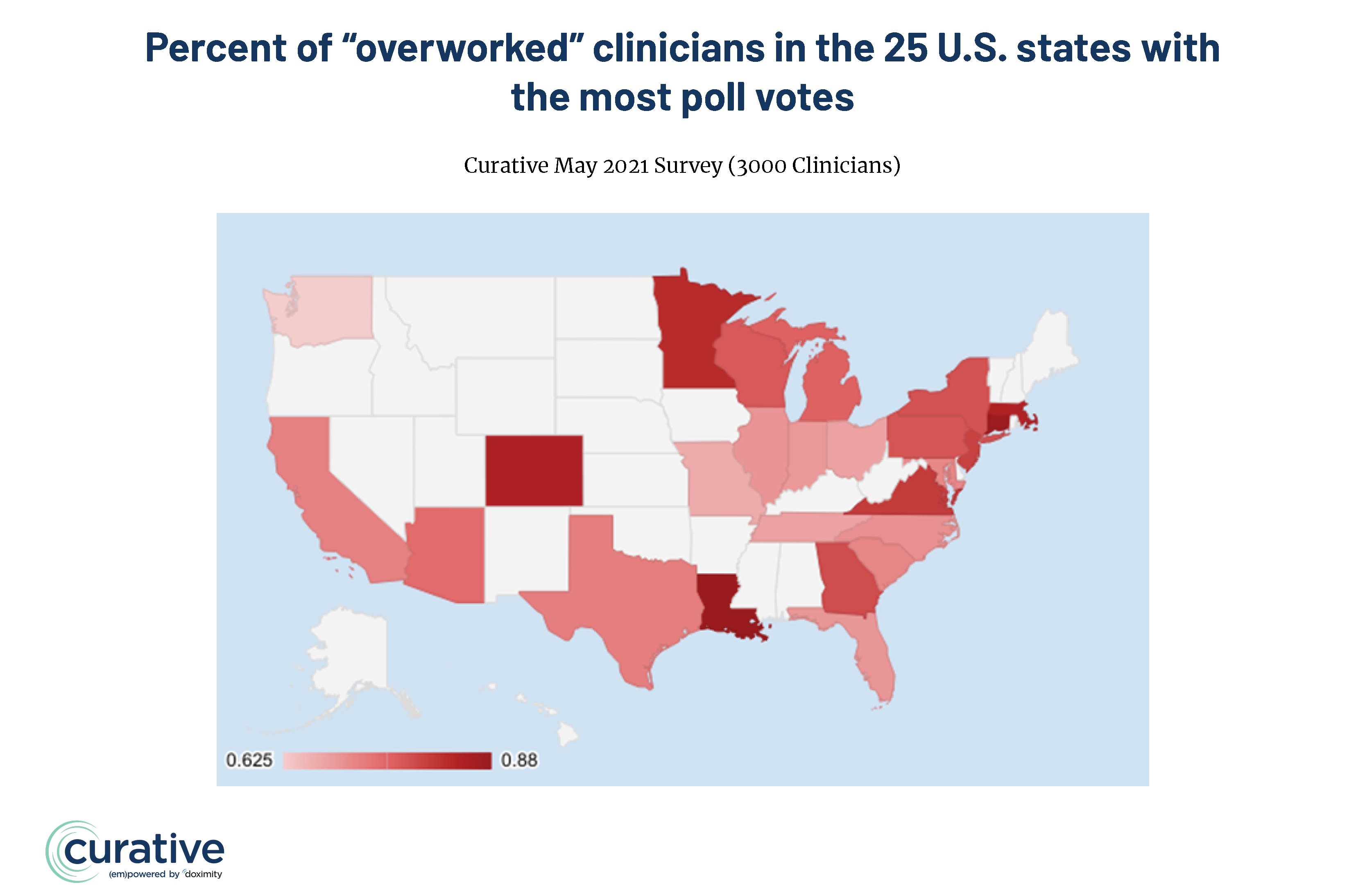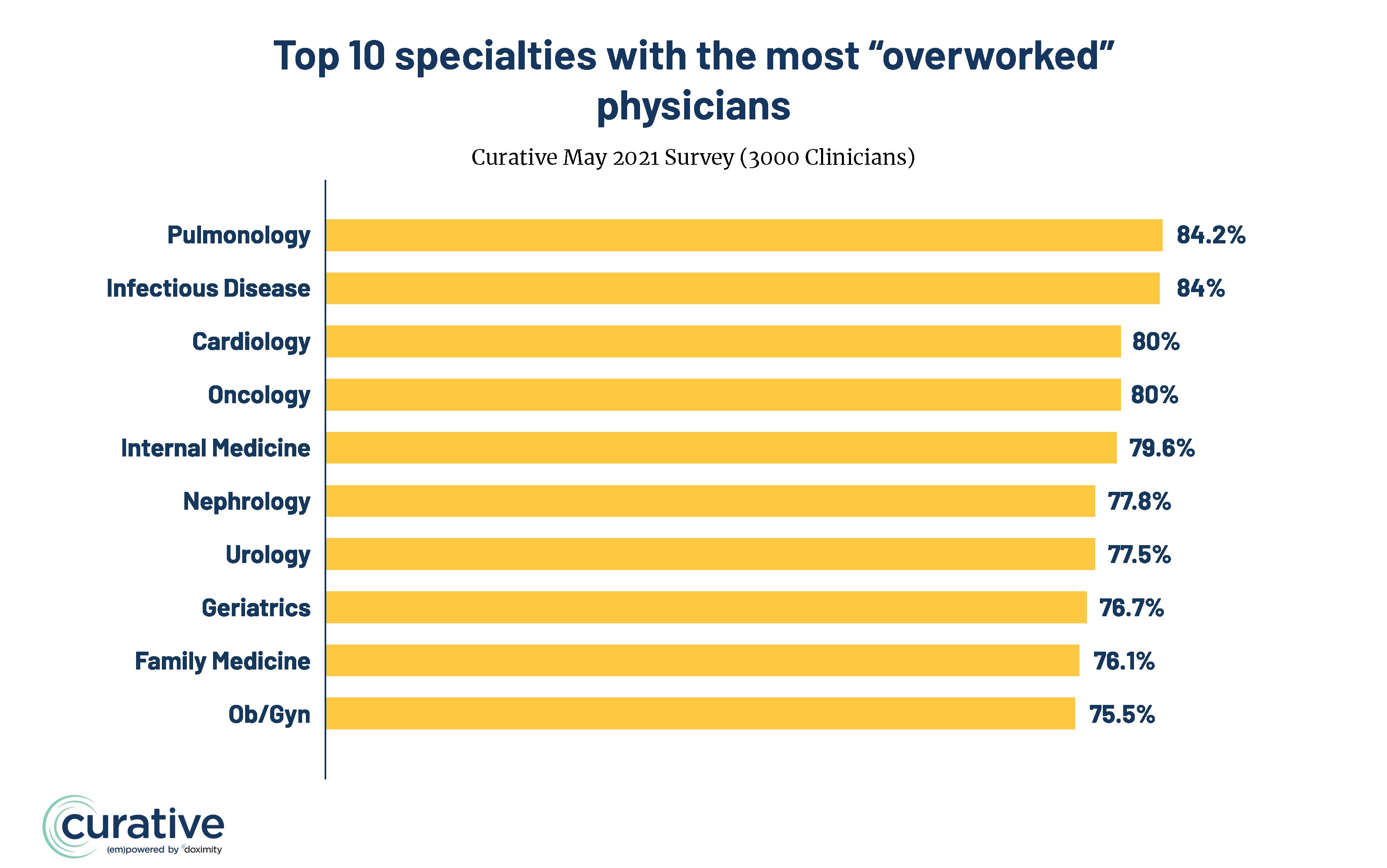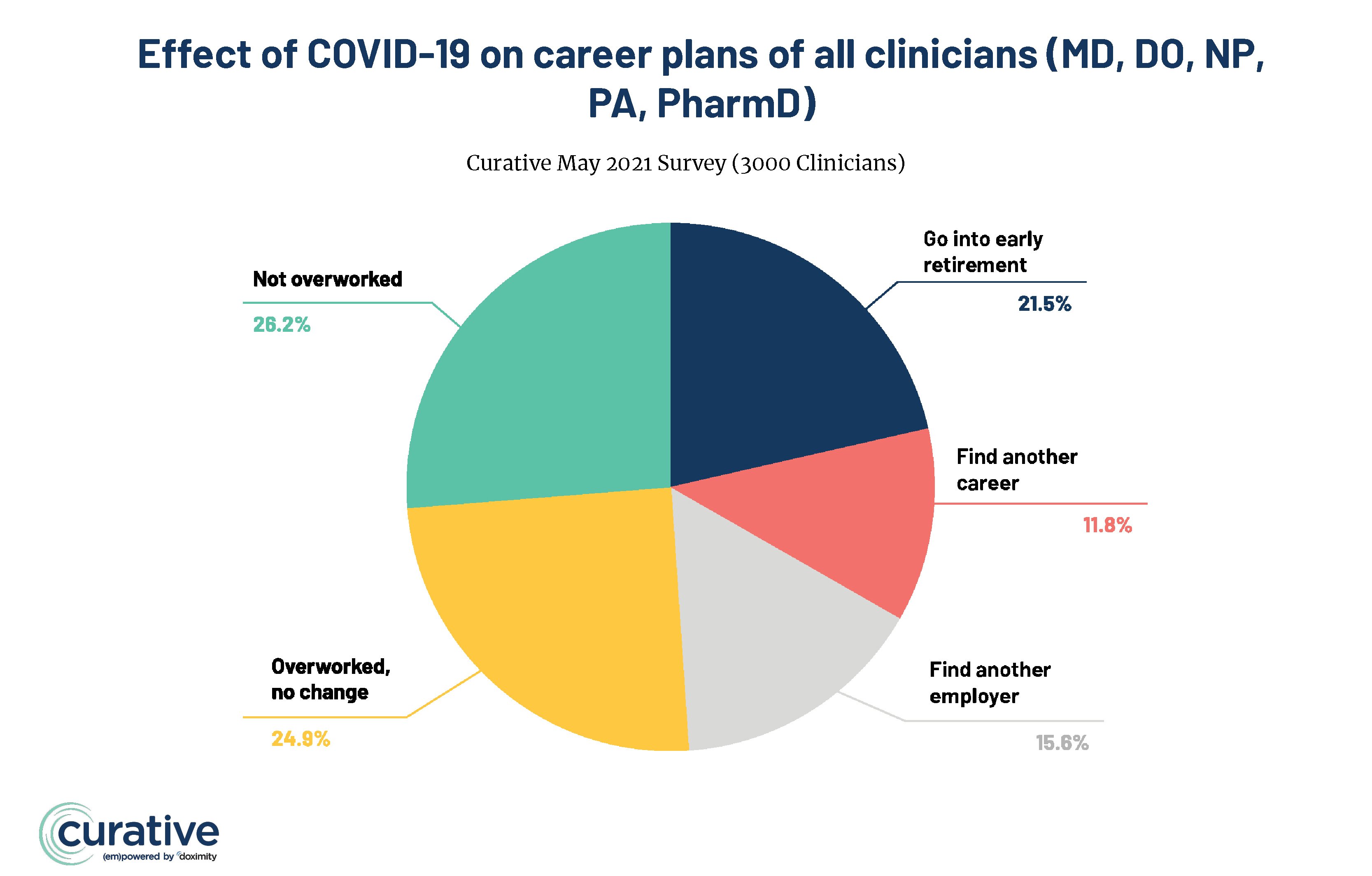As part of our process to understand the current sentiment around the healthcare profession, we surveyed nearly 3,000 clinicians on their views. Our findings resulted in deep insights and perspectives on their attitudes towards work and how COVID-19 has altered many of their career plans. We’ve compiled the results in our special report: The Impact of COVID-19 on Healthcare Careers. Below is an excerpt. ________________________
Roughly 74% of clinicians acknowledged that they have been overworked during the COVID-19 pandemic, spurring movement toward a career change for many, according to our poll on the Doximity network.
The results signal growing unease in an industry that has shouldered increasing responsibility since the pandemic took hold last year. Clinicians across the health care landscape have repeatedly expressed concern about overextension due to factors as wide-ranging as economic hardship and administrative red tape.
A survey released at the outset of the pandemic indicated that the COVID-19 crisis prompted nearly half of physicians to seriously rethink their practice. Months later, this sentiment appears mostly unchanged, despite the widespread distribution of COVID-19 vaccines and easing of restrictions throughout the U.S.
The latest Curative poll, conducted in May 2021, confirmed this trend, even among a broader cohort of health care professionals including physicians, nurse practitioners, physician assistants, and pharmacists. Among the 2,937 clinicians who participated in the poll, nearly 74% of physicians, NPs, and PAs asserted that they were overworked, compared with 86% of pharmacists.

Among the 10 states with the largest proportion of overworked clinicians, half were located in the Northeast, potentially pointing to greater clinical burden in the region. The pattern may coincide with states in this region — e.g., New York, New Jersey, and Massachusetts — facing some of the steepest death rates due to COVID-19.

Physician workload varied considerably by medical specialty. Specialties reporting the greatest workload were pulmonology and infectious disease, both at 84%. The nature of the coronavirus sharply increased demand for experts in these domains throughout the course of the pandemic. This sudden increase in need and responsibility may have escalated their sense of being overworked.
In contrast, physicians least likely to feel overworked were otolaryngologists (50%), pediatricians (62%), and ophthalmologists (63%). Their tendency toward reduced workload aligns with the decline in visits to otolaryngology, pediatrics, and ophthalmology practices reported during the pandemic. Residents were also less likely to say they were overworked at 69%.

Among overworked clinicians, the toll of COVID-19 has compelled nearly half to reconsider their career plans: 21% now foresee early retirement, 16% are searching for a new employer, and 12% are pursuing a new career.

Want to read the full report report? Click the download button below.
